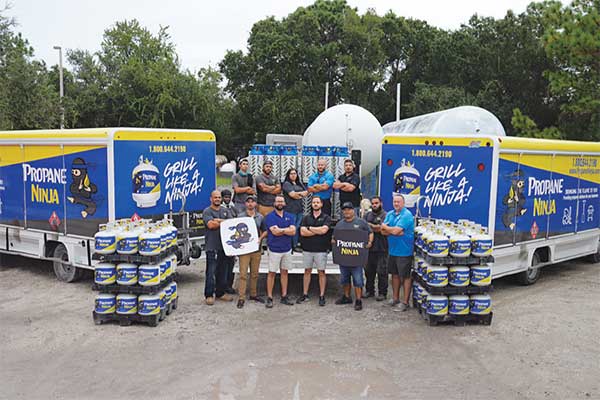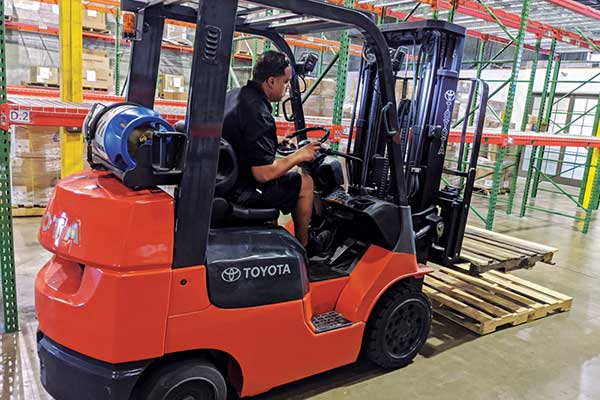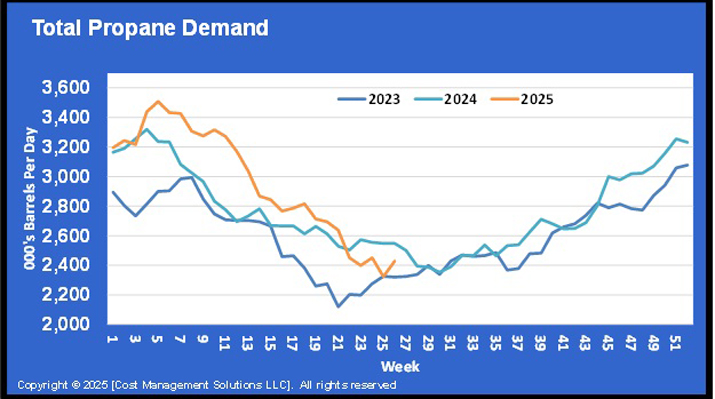Composite cylinders help retailer make headway in forklift market

Since its founding in 2013, Propane Ninja has grown to become a half-million-gallon company serving central Florida. Photo by Trent Bamberry
Propane Ninja, a central Florida-based retailer, has experienced considerable success infiltrating the forklift market with its composite cylinders.
The retailer, which was founded in 2013 and has since grown into a half-million-gallon company, began sourcing the product from manufacturer Viking Cylinders about three years ago.
Composite cylinders are made of fibers and plastic resin, offering an alternative to steel and aluminum tanks. They are constructed with three layers: a seamless liner, a fiberglass-wrapped plastic casing and a protective outer case.
They hold up to 7.38 gallons and are ideal for a variety of reasons in the forklift market, according to Martin Zenk, senior representative of business development at Propane Ninja.
For example, the Occupational Safety and Health Administration (OSHA) issued a recommendation that two people are needed to lift and load cylinders weighing more than 50 pounds. Zenk explains steel propane cylinders are typically about 70 pounds when full, while aluminum tanks are nearly 60 pounds when full.
Meanwhile, composite cylinders are 47 pounds when full – and can therefore be moved around by one person.
“That means if you’re running a forklift and you’re using the aluminum or the steel tanks, you should be having two people load and unload that propane tank when you’re swapping out,” Zenk says. “So that’s a big labor incentive to use something that’s less than 50 pounds.”

Composite cylinders are 47 pounds when full, so only one person is needed to load and unload the tanks when operating a forklift. Photo by Mike Dodd
The cylinders also have noted safety features.
For example, they are not prone to a boiling liquid expanding vapor explosion. Instead, the composite cylinders maintain a controlled burn before they over-pressurize.
In addition, each cylinder features only one port for all of the mechanics of the valve, the excess release, the bleeder and the fill portion.
“If you have a leak or some damage to the tank, you can fix it or repair it very quickly versus the older style, which has several ports for each piece,” Zenk explains.
Propane Ninja says the composite cylinders have become popular with customers. In fact, Zenk estimates 70 percent of his customers adopt the Viking cylinder after a full product demonstration. He also says the cylinders bring anywhere from 15 to 20 new customers a month. Of those, three to five customers are typically referrals.
In terms of marketing strategies, Propane Ninja opts for classic, door-to-door tactics. The company provides potential customers with flyers that feature a photo of a composite cylinder. Zenk says customers react well to the eye-catching design of composite cylinders, which has ultimately been beneficial for the retailer.
“There’s the safety features, it’s lightweight, it’s ergonomic,” Zenk explains. “So when you can get all of those upgrades and the pricing is still competitive, it’s a no-brainer for a lot of our customers.”
In addition to selling composite cylinders in the forklift market, Propane Ninja also offers training for forklift users. Customers can request Propane Ninja COO Peter Samuelson, who is OSHA-trained on forklift instruction, to visit their sites and provide proper training so their employees can become forklift-certified.
















